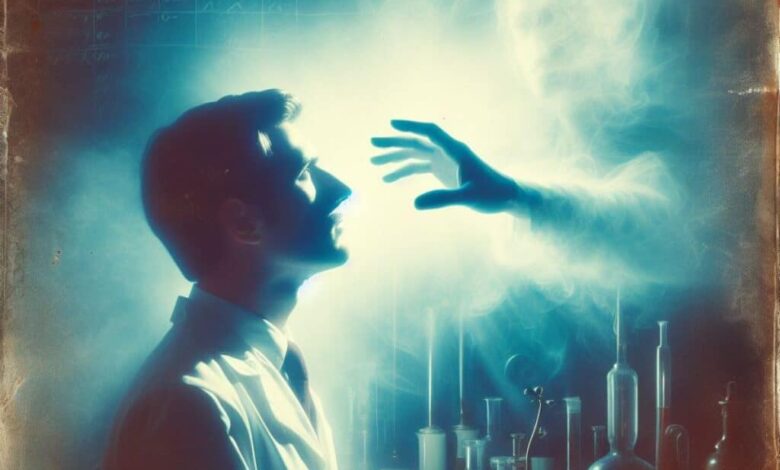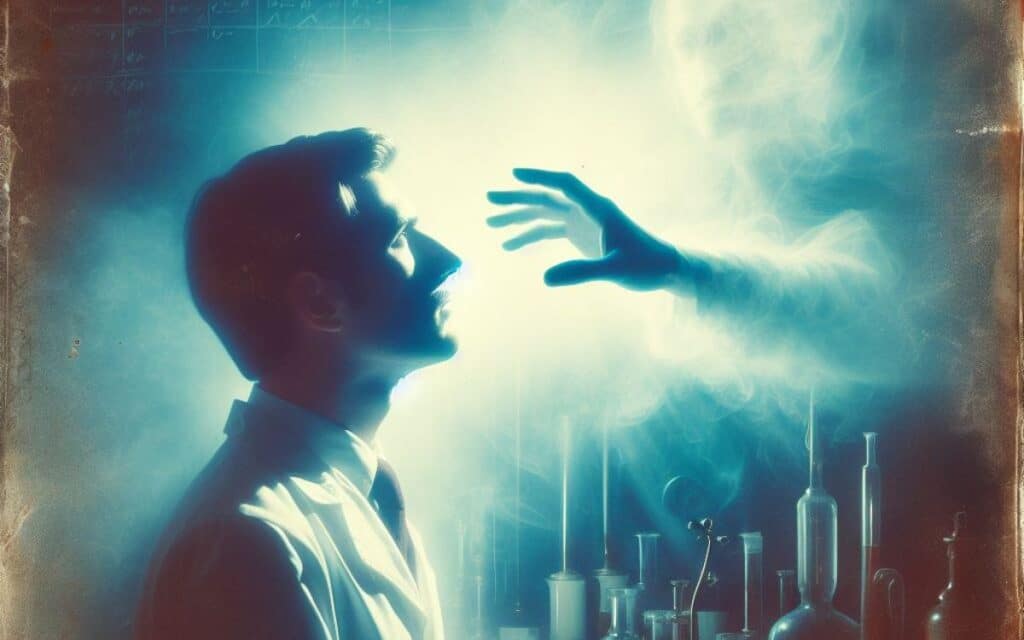Meet Philip Aylesbury: The Ghost Created By Scientists

Philip Aylesbury, the aristocratic ghost from the Cromwell era, was created by British scientist Dr George Owen and his team in 1972 to challenge the limits of paranormal research. LES HEWITT tells us about the amazing experiment

Do you believe in the existence of ghosts?
To some, that may or may not be a rhetorical question. Even the most casual of readers here are more likely to subscribe to this idea. For centuries now, the study of ghosts, hauntings, the afterlife, poltergeist activity and parapsychology have continued with an almost insatiable devotion.
Much of this study and theory have explored the origins of those souls who have deemed never to fully passed on; who they were and why they remain. However, in 1972, an enterprising British Scientist by the name of Dr George Owen got together with other leading researchers of the day to investigate the potential of whether or not ghosts actually existed.
This small team would regularly meet and work with each other to create a manifestation of a long deceased English lord that had never actually existed within a physical realm. In essence, this group worked on creating a fictional spirit and then try to make this form appear during a séance in front of witnesses!
Not one member of this octet, dubbed The Owen Group, had any psychic skill or ability. While all members of this group were experts within their own particular walk of life, there were few that were scientific by nature. While a large percentage were academics – accountants, engineers and legal counsel, others included students and even a housewife.
Over the course of several weeks, the group would collaborate and create a profile of the individual that they intended to create. This ultimately led to a biographical history of the man.
Philip Aylesbury is born
The name given to this man was Philip Aylesbury. He was a minor aristocrat that lived in England during the rein of Oliver Cromwell. The catholic was married to Dorethea – a daughter of a neighbouring nobleman. Aylesbury was a staunch supporter of the King.
When he was out riding on his estate one day, he chanced across a gypsy encampment and was immediately besotted by a young raven haired lady named Margo. He invited her to the gatehouse of his manor without informing anyone.
For a while, this arrangement remained a closely guarded secret. When Dorethea realised what was occurring under her very nose, she accused Margo of witchcraft and stealing her husband. This put Philip in an awkward position. He opted to protect his own reputation and standing ahead of Margo’s life, so refused to intervene. Margo was convicted and sentenced to death. She was burned at the stake.
Following her execution, Philip grew more and more grief stricken and guilty that he refused to act in her defence. As time passed, Philip did little more than routinely pace the battlements of Diddington, his family home. This routine ended when he was discovered at the foot of the battlements. Anguish had finally reached its peak.
The biography they developed was just the first stage of this process. Once completed to their satisfaction, an artist within their ranks was commissioned to enhance this with a portrait of how the nobleman was intended to look if he had ever existed.
Now it was time to begin the real work.
The group began sitting in September 1972. They would meet and discuss all things Philip. Nothing was left uncovered. His life and death, his infidelity and allegiances. All members of the group would also meditate and try to visualise their own hallucination. All of this work was conducted in a fully illuminated setting.
Hardly anything happened for most of the following year. Sporadic reports of some form of contact were logged, but nothing substantial ever occurred. A change to the approach was required and, collectively, the decision was taken to continue with the experiment, but on different terms. Subsequent attempts would be conducted in classic séance conditions.
The Philip Experiment
When the experiment restarted, each participant would be sat around a circular table with dimmed lighting. Sample images of how Diddington was imagined to have been constructed were introduced. Songs were sung. This enhanced effort yielded more positive results almost immediately.
Their first successful contact came with a single rap on the table they used. It was the very first of many reported responses to simple yes/no questions that came from every member present. One of the very first affirmations to be established was whether or not this was actually ‘Philip. According to all those present, it was.
The more that the Owen Group continued, the more events increased. Additional details were gleaned from progressive séances. With each session, Philip even began to adopt a form of personality. The table began to move and, incredible as it sounded, tipped onto a single leg as well.
All the information revealed during these sessions, however, was a collective among the participants. Nothing new or ground breaking was established to make this endeavour a more creditable one. Many of these sessions were recorded, but no extra voice was part of these recordings. It was basically just the group’s word.
To address this, the group agreed to invite an audience of 50 witnesses to independently confirm that the events occurred as described. An additional television crew was also invited to witness p4oceedings as part of a documentary. Philip was all too happy to oblige as well. Beyond rapping on the table, Philip managed to affect the lighting, supply audible noises at various parts of the room, and even levitate the table for the television cameras to capture.
For professionals who explore the limitations of the human mind, there are those that insist that science has yet to scratch the surface of what the mind can and cannot do. Is it at all possible that the Owen Group managed to conjure a spirit from the ether, name it, then present these findings to the watching world? If so, can anyone accomplish this feat?
If they did make contact with the other side, who responded? Did a passing benevolent energy – or worse, a malevolent one – exploit these attempts for their own gain? Either way, it can be quite a scary thought.
Tell us your thoughts on this Philip Aylesbury article in the comments below!



